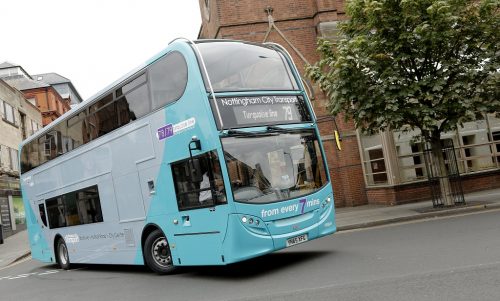
With the increasing popularity of WiFi on coaches and buses and rising public expectation, allowing passengers complimentary internet access on the move need not be expensive, as long as operators are aware of the pitfalls, writes John Lewis
No matter whether their journeys are short or long, bus and coach passengers expect to be kept entertained and informed. These days that invariably means that the operator has got to provide a WiFi service – yet another overhead that has to be funded, given that passengers will expect to use it free of charge.
“While onboard WiFi was classed as a passenger luxury up until recently, it’s becoming more and more of a must-have,” said Neil McArthur, UK and Ireland Country Manager at Fält Communications, which offers a mobile Internet of Things platform under the MIIPS banner.
“It’s what people are expecting,” said Corbin Adler, a Director of onboard WiFi provider Mobile Onboard. “It’s becoming standard.”
Stagecoach, Arriva, Blackpool Transport, Nottingham City Transport, Halton Borough Transport, Trent Barton and Cardiff Bus are among those operators which have adopted WiFi with alacrity on some or all of their vehicles.
A random example; during the past year the last-named fleet has invested £1.5m in putting 10 new ADL Enviro200 MMC single-deckers on the road complete with 4G WiFi – the fourth generation of broadband cellular network technology – using equipment sourced from Icomera. Also fitted are a next-stop announcement system provided by Hanover Displays and USB charging points.
WiFi is a must-have that can be expensive to provide however, given the cellular data costs associated with offering internet-based services; especially if travellers decide to watch lots of feature films on their mobile devices on a long journey. As a consequence, operators may have no choice but to impose a limit on each device to hold down costs and ensure that everybody onboard enjoys equal access to the service.
“WiFi can consume anywhere from 5% to 10% of your operating profit,” said Sam Glover, CEO and Founder at LetsJoin. “The big networks have realised that data SIMs are the way they make their money and they want to maximise their income,” added Corbin.[…]
By subscribing you will benefit from:
- Operator & Supplier Profiles
- Face-to-Face Interviews
- Lastest News
- Test Drives and Reviews
- Legal Updates
- Route Focus
- Industry Insider Opinions
- Passenger Perspective
- Vehicle Launches
- and much more!


